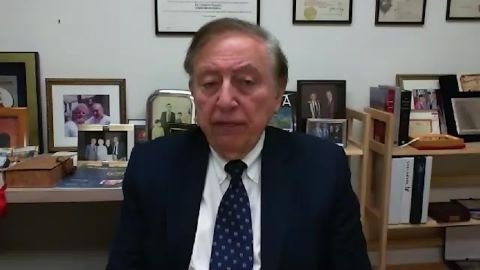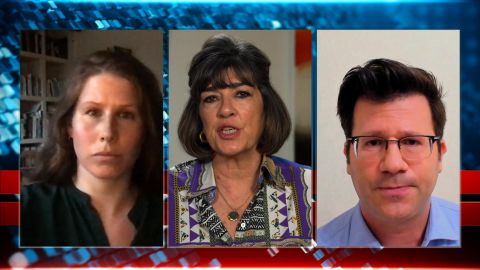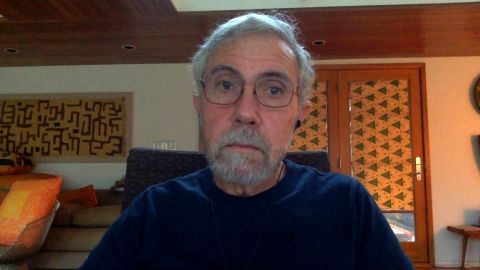Read Transcript EXPAND
CHRISTIANE AMANPOUR: You heard what the president said, I have to make a decision and I hope to God I make the right decision. Do you think that — or what will the right decision be in terms of opening up the country back to the economy?
PAUL KRUGMAN, NOBEL-PRIZE WINNING ECONOMIST: Oh, it clearly needs to wait for a long time. I mean, the epidemiologists, and they are the ones to follow here, say that we still have way too many people out there who are infected, possibly, you know, disease spreaders, to open up any time soon. Because if we do that, then we’ll very quickly get back to the level of — you know, we have made a little, flattened the curve but we’re still very high on that curve and need to get way down on it before you can start to resume anything like normal activity. So, it would be nice if we thought that the president was actually listening to people who knew something about the subject. All indications are that he is talking to cranks and hedge fund managers.
AMANPOUR: Well, let me ask you because your newspaper over the weekend on Sunday did a very long dive into what they say was a lot of, you know, missed time in terms of playing down the seriousness of this by the White House and essentially, you know, potentially putting the economy as number one concern. And basically, here’s what, you know, “The Times” says, even after Mr. Trump took the first concrete action at the end of January, limiting travel from China, public health often had to compete with economic and political considerations in internal debates, slowing the path toward belated decisions to seek more money from Congress, obtain necessary supplies, address shortfalls in testing and ultimately move to keep much of the nation at home. So, I guess the question to you is, is the economy better or worse off because of the decision to delay shutting down the nation? I mean, try to sort of unpick that for us.
KRUGMAN: OK. Now, my understanding is that something like this extreme shutdown that we are now going through was going to be necessary probably — you know, because we failed to act quickly to do mass testing and containment very early in the game, once this — once the thing was out of the bag, then we were going to have this extended — this massive shutdown. The question is, how long does it have to go on? And having delayed so long, having allowed the disease to become so widespread means that the shutdown, in fact, is going to have to go on longer than it would have it if had begun sooner. If you stop with, you know, a relatively small percentage of the population infected then you get the infection rate down to a level where you can start to reopen much sooner than if you wait until it’s very widespread, which is what we actually did. So, no. We will end up having lost probably trillions of dollars of GDP because Trump delayed taking action.
About This Episode EXPAND
Christiane speaks with Nobel Prize-winning economist Paul Krugman about the economic impacts of coronavirus and Caroline Criado Perez and Dr. Sharon Moalem about why more men than women are getting infected. Dr. Robert Gallo joins Walter Isaacson for an exclusive conversation about how the oral polio vaccine might be a short-term treatment for coronavirus.
LEARN MORE


